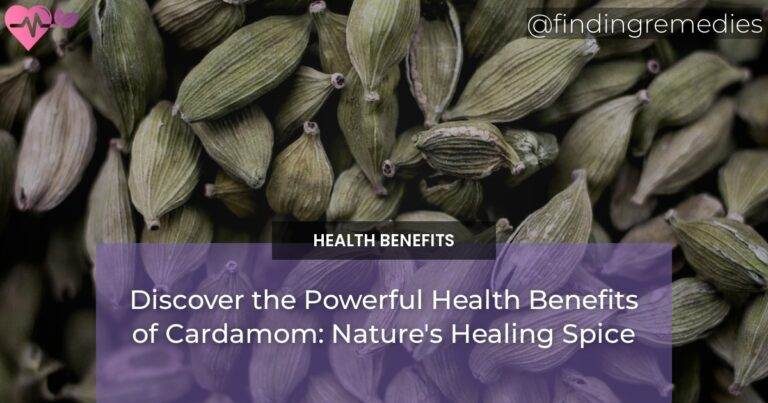Overview of Cardamom
Introduction to Cardamom
Cardamom is a spice that has been used in traditional medicine for centuries. It is a member of the ginger family and is commonly used in Indian, Middle Eastern, and Scandinavian cuisines. Cardamom has a sweet, floral flavor that is often used in desserts and sweet dishes, but it can also be used in savory dishes.
Table of Contents
Nutrition Profile of Cardamom
Cardamom is a low-calorie spice that is rich in nutrients. It is a good source of fiber, iron, and manganese. It also contains small amounts of other minerals, such as zinc and magnesium.
ALSO READ
Types and Varieties of Cardamom
There are two main types of cardamom: green and black. Green cardamom is the most common type and is used in sweet dishes and desserts. Black cardamom has a smoky flavor and is used in savory dishes. There are also different varieties of cardamom, such as Sri Lankan and Indian, which have slightly different flavors.
Natural Compounds in Cardamom
Essential Oils
Cardamom contains essential oils, which are responsible for its aromatic flavor. These oils have been shown to have antimicrobial and anti-inflammatory properties.
ALSO READ
Antioxidants
Cardamom is also rich in antioxidants, which can help reduce inflammation and oxidative stress in the body. Antioxidants may also have benefits for heart health and cancer prevention.
Other Compounds
Cardamom contains other compounds, such as terpenes and flavonoids, which have been shown to have anti-inflammatory and anti-cancer properties.
Health Benefits of Cardamom
Managing Metabolic Syndrome
Metabolic syndrome is a group of conditions that increase the risk of heart disease, stroke, and diabetes. Cardamom has been shown to have benefits for managing several of these conditions, including high blood pressure, high cholesterol, and high blood sugar.
Lowering Blood Pressure
Cardamom may help lower blood pressure by relaxing blood vessels and improving blood flow. This can help reduce the risk of heart disease and stroke.
Regulating Blood Sugar
Cardamom may also help regulate blood sugar levels by improving insulin sensitivity and reducing inflammation in the body. This can be especially beneficial for people with type 2 diabetes.
Reducing Inflammation and Oxidative Stress
Cardamom’s anti-inflammatory and antioxidant properties may also have benefits for reducing inflammation and oxidative stress in the body. This can help reduce the risk of chronic diseases, such as cancer and heart disease.
Improving Digestive Health
Cardamom has been used in traditional medicine to improve digestive health. It may help reduce symptoms of indigestion, such as bloating and gas, and may also have benefits for reducing inflammation in the gut.
Anti-Cancer Properties
Cardamom’s compounds have been shown to have anti-cancer properties in laboratory studies. They may help prevent the growth and spread of cancer cells, although more research is needed to confirm these benefits.
Risks and Disadvantages of Cardamom
Allergic Reactions
Some people may be allergic to cardamom and experience symptoms such as itching, swelling, and difficulty breathing.
Interactions with Medications
Cardamom may interact with certain medications, such as blood thinners and anti-inflammatory drugs. If you are taking any medications, be sure to talk to your doctor before adding cardamom to your diet.
High Consumption Risks
Consuming large amounts of cardamom may have risks, such as digestive upset and increased risk of bleeding. It is best to consume cardamom in moderation as part of a balanced diet.
Cooking with Cardamom
Culinary Uses
Cardamom is a versatile spice that can be used in sweet and savory dishes. It is often used in Indian cuisine, where it is added to curries, rice dishes, and chai tea. It can also be used in desserts, such as cookies, cakes, and ice cream.
Proper Storage
To preserve the flavor and aroma of cardamom, it should be stored in an airtight container in a cool, dry place. Ground cardamom should be used within six months, while whole pods can last up to a year.
Conclusion
Cardamom is a flavorful spice that has been used in traditional medicine for centuries. It is rich in nutrients and natural compounds that have benefits for managing several health conditions, such as high blood pressure, high cholesterol, and high blood sugar. It is also a versatile spice that can be used in sweet and savory dishes. However, it is important to consume cardamom in moderation and talk to your doctor if you are taking any medications.

